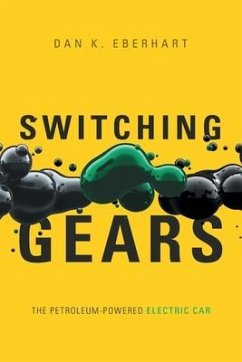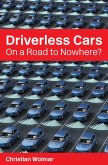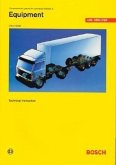The world is on the precipice of energy innovation. As we strive toward cleaner fuels, some technologies will rise and others will fall. Will the Tesla Roadster and the Nissan Leaf go the way of the 1890s' Morrison Electric? The new rock stars of the transportation industry are radical entrepreneurs with visions that may change the landscape of energy as drastically as computers changed the landscape of communication. Electric vehicles (EVs) are steadily gaining acceptance. Countries like Norway, France, India, and China have stated that they will abandon sales and manufacturing of conventional vehicles by 2025-2030 in favor of EVs. Eberhart's expert book provides everything we need to know to engage in the debate over EVs versus internal combustion vehicles. He skillfully sorts fact from fiction, puts valuable research at our finger tips, and offers us a glimpse of what the world might look like in 2050 with a potential worldwide population of 9.6 billion people and over 530 million EVs on our roads. The future has never seemed more like science fiction. We've seen hydrogen fuel-cell-powered trains ("hydrail"), autonomous drones, the first prototypes and working models of electric jets, and vertical takeoff and landing (VTOL) vehicles. Uber promised to lift intercity EVs to the sky with its Elevate program, and smaller startups have demonstrated ingenious contraptions for human-powered flight. Eberhart envisions a successful energy revolution where we learn from our mistakes and solve our puzzles, as we work toward a future that allows us to be conscientious, powerful, and energy-savvy all at the same time. Are EVs really the holy grail of energy solutions-power without fossil fuel? Are EVs here to stay?
Hinweis: Dieser Artikel kann nur an eine deutsche Lieferadresse ausgeliefert werden.
Hinweis: Dieser Artikel kann nur an eine deutsche Lieferadresse ausgeliefert werden.








